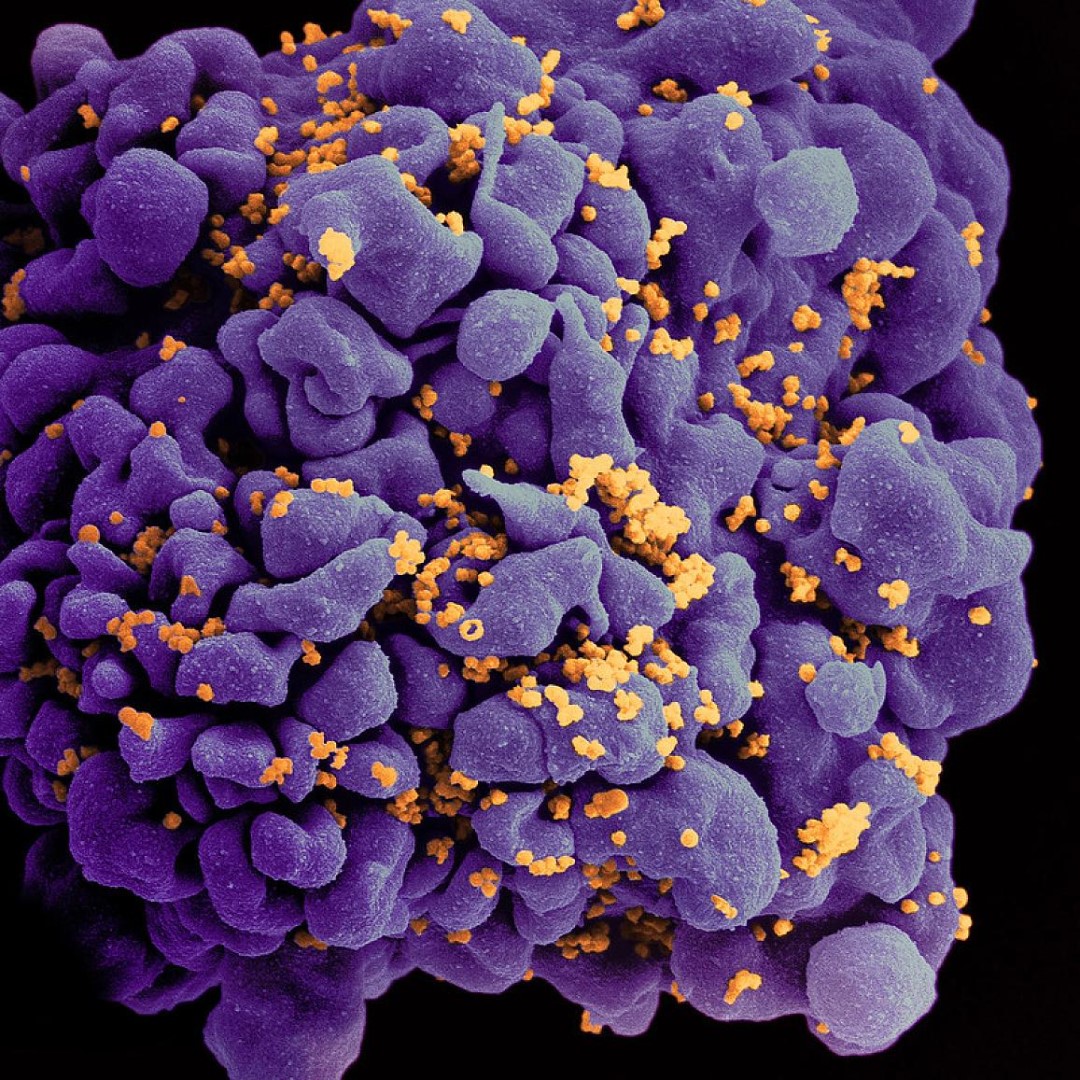
UMN Institute scientist links ancient virus to cancer risk
On Mar. 16, 2020, the Hormel Institute, University of Minnesota announced published research concerning remnants of ancient viruses found in human chromosomes and how this may affect the risk of developing cancer and other diseases.
The team of researchers found out that people without centromere virus remains are more prone to develop a disease called cutaneous T-cell lymphoma, a type of cancer affecting the skin, but they did not find any association with other cancers or skin conditions. Additionally, the fewer centromere virus remains they found, the higher the chance the people developed a severe form of cutaneous T-cell lymphoma, called Sezary Syndrome.
Tags:
Source: Masonic Cancer Center
Credit: Photo: Microscopy of HIV-infected H9 T cell, colorized in orange, courtesy the National Institute of Allergy and Infectious Diseases.
